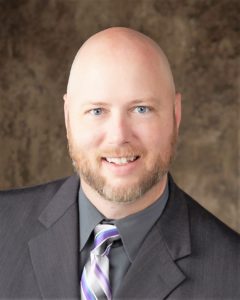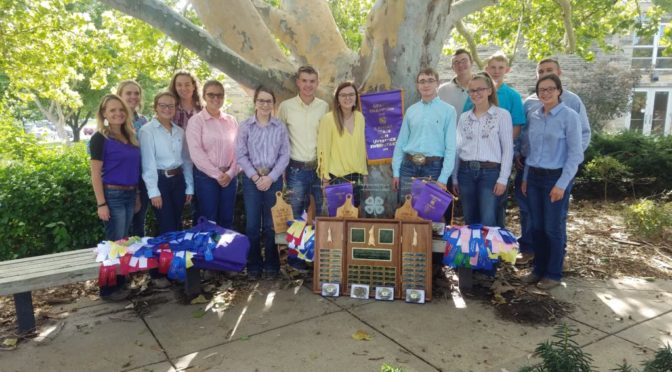Kansas Reading Roadmap Calls for DCF to Correct Misstatements
Citing violation of due process, a grossly negligent report and abuse of governmental authority
The Kansas Reading Roadmap (KRR) today called upon Gov. Laura Kelly and Department for Children and Families (DCF) Sec. Laura Howard to retract statements made on Friday suggesting that Hysell & Wagner, LLC was paid improperly and falsely impugning the program and its results.
On Friday, DCF released details of a draft audit prior to the 30-day period for response by Hysell & Wagner, violating basic due process. These violations generated unsubstantiated and inaccurate news headlines critical of the firm, causing irreparable harm to its reputation and that of the Kansas Reading Roadmap. Trying to attack contracts in the court of public opinion when they cannot prevail in the court of law is a dangerous abuse of governmental authority and subversive of the business environment in the state.
The Kansas Reading Roadmap is an innovative early literacy model that was developed specifically for Kansas schools and provides Kansas taxpayers both the value of a social service as well as educational impact for children. First, it provides core TANF services for low-income families across the state. The Reading Roadmap provides annually nearly one million hours of free, quality school-age childcare services in afterschool and during the summer for low-income working families. In addition, the grants to schools help facilitate 400,000 healthy snacks and meals for children and families. The program employs directly, and through school partners,1,300 Kansans.
The Reading Roadmap provides an educational benefit to each participating child. It combines and aligns afterschool, summer and family support programs with school reading and intervention data. Based on school tests, children reading at grade level increased 26 percent by attending the program compared to their non-participating peers. We have developed curricula that can now be used by any school in Kansas free-of-charge to replicate this successful model.
DCF’s cancellation of the grant means the Reading Roadmap will soon lose its educational impact which helps children become proficient readers as a strategy to break the cycle of poverty. It will hurt the very children the agency is supposed to protect.
Information inappropriately released was from a grossly inaccurate and flawed draft audit. A cursory review of the underlying audit document over the weekend revealed serious errors prejudicial to Hysell & Wagner. The company has referred the matter to its law firm and CPA for further evaluation and in anticipation of potential litigation.
These errors include, but are not limited to:
· A false claim that nearly $1 million in advances of program funds to schools were not proper despite language authorizing advances in the grant award, federal rules allowing advances, DCF’s own process allowing advances and the very fact that the agency advanced funds over multiple years as part of this grant;
· The DCF auditors falsely asserted that Hysell & Wagner did not have an approved indirect cost rate of 9 percent, accounting for $447,520.14 of the contested funds. “Hysell & Wagner, LLC utilizes a 9 percent indirect cost rate that is allowed under the Uniform Guidance” according to the company’s 2015 independent federal audit.
· $278,048.09 in salaries paid to Kansas-based staff were included as contested funds in the audit despite proper timesheets provided by Hysell & Wagner to DCF.
DCF suggested that grant funds were used improperly to travel from the company’s home office to the state of Kansas. No funds were improperly used for travel for company executives. The travel funds were part of the approved budget and federally permissible and were used to travel exclusively into and around the state of Kansas to ensure the efficient and accountable implementation of the grant.
DCF falsely accused Hysell & Wagner of improper payments. The underlying draft audit document does not support what they said. There were no findings of any improper payments or misuse of funds at any time. There were financial errors identified in the 2015 independent federal audit that led to significant changes by the company. As a result, the 2016 audit showed only two procedural errors, of which one was from 2015, and then no subsequent errors in its 2017 and 2018 audits. Today, Hysell & Wagner is releasing all federal audit reports from 2015, 2016, 2017 and 2018. All of these were previously received by DCF and have been in their possession for several years.
DCF announced Friday morning that it was terminating the grant to fund the Kansas Reading Roadmap. However, every reason DCF asserted to terminate the grant was already known to the agency prior to the FY20 grant renewal signed on June 28, 2019 by DCF. Hysell & Wagner agreed to every change the state agency had requested regarding travel and overhead costs prior to the state’s decision to renew the grant. To substantiate this, the firm is releasing its fiscal year 2020 grant document signed by Secretary Howard on June 28, 2019 that includes an approved budget as well as salary information for its executives.
It is very clear that DCF did not cancel the grant due to the audit or the Reading Roadmap’s overhead costs. Instead, it did so as retaliation for our refusal to sign a subsequent amendment harmful to our schools and program.
The only other event that occurred after the grant renewal on June 28 was Hysell & Wagner’s refusal on August 4 to sign an additional amendment proffered by DCF. This amendment and the response that Hysell & Wagner provided are being released as well.
The amendment included changes to the audited reporting system KRR created in collaboration with DCF to meet federal and state guidelines. The modification of this system would inevitably lead to the clerical problems addressed since the 2015 audit. Further, it would give the agency a way to falsely claim that Hysell & Wagner was not permitted to advance funds to schools under the terms of the grants dating back to 2015.
Most importantly, these proposed changes in the amendment would have put Kansas schools at risk, asking them to bear the costs of running the KRR program upfront. Because Kansas schools operate on a cash-basis according to state law, they cannot spend money they do not have. Many of the smaller, rural districts that the KRR works with do not have the money to float these expenses.
After renewing the grant in June, DCF asked KRR to sign an amendment to the Reading Roadmap grant that would put schools at risk of breaking state law and we said no. Ten days later, DCF cancelled the grant. KRR stands by its decision to not sign that amendment.
KRR calls upon Gov. Kelly to correct the record. KRR’s 56 schools, 1,300 staff, and most importantly the children, deserve it.



